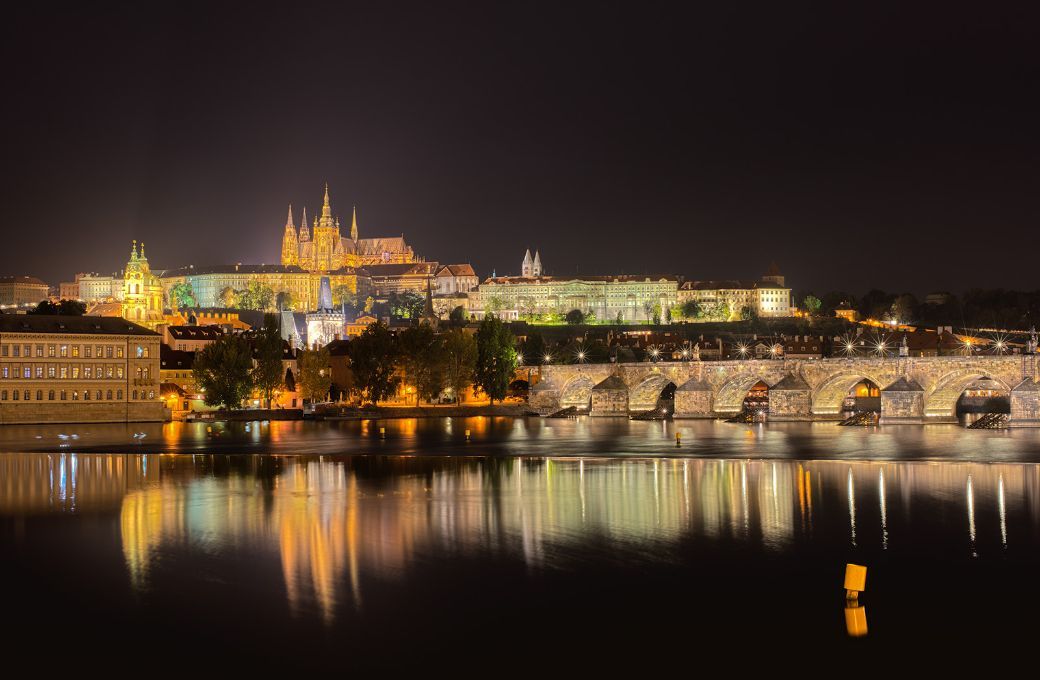Camus said once that Prague has such a glistening surface it was as if the city were “cut out of gold paper”, an endless profusion of “grandiose and grotesque Baroque perspectives”. Praha means “threshold”, and that half-hidden memory of Old Europe, in all its contradictions, is forever present behind its ornate facades.

For visitors, this city is naturally intoxicating. So too is its musical and dramatic culture and, as the Republic gears up to the Year of Czech Music 2024, the tempo of standout musical offerings only accelerates.
This autumn there is a rich profusion of new and repertoire operatic productions, of classics and rarities. In September, two new productions at the Prague State Opera stand out. Donizetti’s L’elisir d’amore is this season directed by Julia Burbach, known to London audiences for her stripped-down Ring at Grimeborn Opera. Her first time directing a new staging in Prague is likely to be fascinating.
Then, later in November will be a surely unmissable production. Shostakovich’s wild and revolutionary Lady Macbeth of the Mtsensk District will be in a new staging from Martin Čičvák. His Ball im Savoy received five stars from our correspondent in 2022 (a production that will also be revived this October).
There are several new productions from the Czech National Ballet in the autumn too. Filip Barankiewicz directs John Cranko’s Romeo and Juliet beginning in September, and a new production of Jean-Christophe Maillot’s Cinderella is also on the boards in October and November. Finally, perhaps the standout new ballet this autumn will be A Streetcar Named Desire in November, in John Neumeier’s choreography. He will also handle direction and set design.
Aside from 2024 being the Year of Czech Music, it is also Smetana’s 100th anniversary. The Smetaniana gets going ahead of time, beginning in September, with the National Theatre Opera’s The Bartered Bride, the ur-Czech opera – and usually great fun. It will run until June next year. Another of Smetana’s operas, Libuše, a considerable rarity (it was first staged in the UK in 2019), depicts through pageantry the story of the primordial ancestor of the Czech people. It is also staged beginning in September.
Another superb Czech opera is Weinberger’s Schwanda the Bagpiper, and another comparative rarity (excepting its orchestral morsel Polka and Fugue): it is at the National Theatre beginning in September. Dvořák’s two best-known operas Rusalka and The Devil and Kate are also on from September and November, at the State Opera and National Theatre respectively.
The Prague opera houses are by no means limited to operas in Czech. Verdi, Puccini, Strauss, Humperdinck and Mascagni all receive outings this autumn. One particularly eye-catching production is Hindemith’s Tuttifäntchen, in a new staging at the Estates Theatre – a stage usually specialising in Mozart. However this 1922 neoclassical children’s fairy tale, of a woodcarver and his come-to-life puppet, is perfect for the Estates, and its Christmastime subject matter naturally chimes with the November-December timing.
There is a rich seam of orchestral fare on offer this autumn too. The Czech Philharmonic are pulling out all the stops in their festival of Dvořák this season. Chief conductor Semyon Bychkov has assembled a crack team of the world’s finest soloists to present Dvořák’s three concertos: Augustin Hadelich (violin) in September, Pablo Ferrández (cello) and Sir András Schiff (piano) in October. All of these concerts are paired with the composer’s classic late symphonies (nos. 7, 8 and 9) – a better and more immersive introduction to the composer can hardly be imagined.
If all of this seems a bit gargantuan or a little too rich for your blood, then this autumn’s chamber music offerings could offer welcome respite. Alongside its Mozart operas this autumn, the Estates Theatre hosts a quartet of song recitals from September through to November. The Church of St Simon and St Jude is one of many venues throughout the city to present chamber music: the Kollert Family piano trio, the Bennewitz Quartet, Radio Antiqua, Trio Orkiestra Historyczna, among others.
Alongside Radio Antiqua and Trio Orkiestra Historyczna, for Baroque fans a few other concerts are worth a look this autumn. The Czech Ensemble Baroque perform Telemann and Monteverdi in October, and the Prague Symphony Orchestra will mount several organ concerto Bach cantatas and the Christmas Oratorio in December.
Finally, several other concerts piqued our interest. In November the Prague Symphony joins the Hradistan Dulcimer Band, led by Jiří Pavlica, for a foray into Czech folk music. In sharp contrast the following month, Martinů’s Ariane, a blast of clear neoclassical water, is in a concert performance by the Czech Philharmonic led by Tomáš Netopil. And also in December, ever-graceful Pierre-Laurent Aimard visits Prague to perform Ravel’s G major Piano Concerto, in a programme of Prélude à l’après-midi d’un faune and Pictures at an Exhibition.
There is much else besides going on in Prague this autumn – too much to mention here – and easily enough to overwhelm visitors. But this surely is what the gold-spangled city is best at doing.
See all our listings for events in Prague.
This preview was sponsored by The Mozart, Prague.


